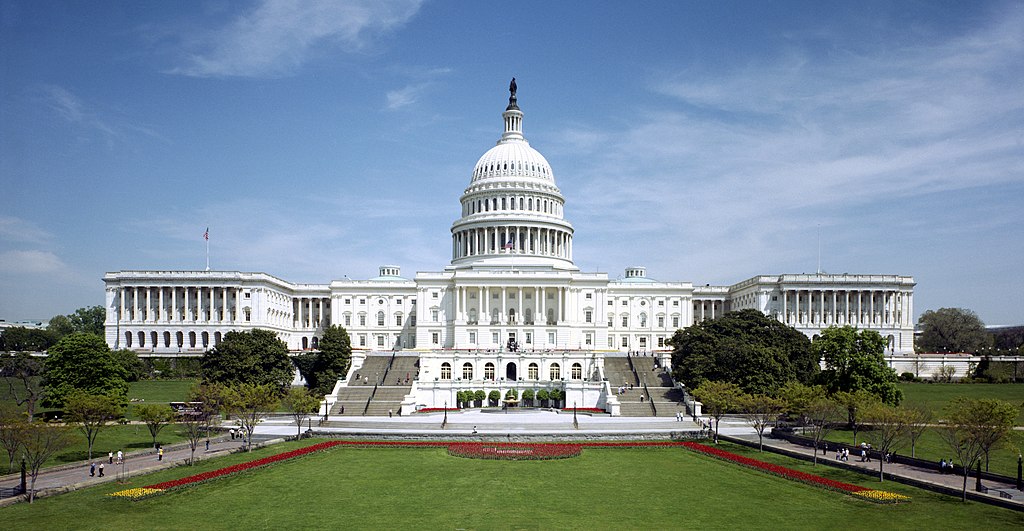The Peninsula
What Does ARIA Mean for Diplomacy with North Korea?

By Kyle Ferrier
In the waning days of 2018, the U.S. Congress attempted to assert greater influence over U.S. foreign policy through the Asia Reassurance Initiative Act (ARIA). President Trump signed the bill into law, but the legislation’s narrow legal focus is unlikely to change the administration’s behavior, especially when it comes to North Korea.
What is ARIA?
The bipartisan act originated in the Senate and was developed over nearly three years. A series of congressional hearings called “American Leadership in the Asia-Pacific” contributed to the drafting of the legislation. The final legislation highlights what members of Congress believe should be foreign policy priorities in the Indo-Pacific and offers monetary support as well as requirements for more accountability from the executive branch to help safeguard these interests.
North Korea is unsurprisingly a major concern outlined in ARIA. “North Korea’s acceleration of its nuclear and ballistic missile capabilities” is listed as one of three regional issues challenging the core tenets of the U.S.-backed international system. Putting its money where its mouth is, the law appropriates $1.5 billion each year through 2023 to be used by government agencies to address major challenges in the region, specifically stating funds can be used for bilateral and multilateral engagement to address North Korea’s nuclear and ballistic missile programs.
New reporting requirements for North Korea further emphasizes the acute importance of Pyongyang’s nuclear program to Congress. The “Report on a Strategy to Address the Threats Posed by, and the Capabilities of, the Democratic People’s Republic of Korea” is one of six new recurring reports created by ARIA. Others are on human rights defenders, engagement with ASEAN, energy strategy, intellectual property protection, and the Lower Mekong Initiative. Among these reports, the North Korea report is not only due to Congress sooner than the others—90 days compared to 180 days—but also more frequently. A new one is due every 180 days for the next 5 years, compared to other reports which are submitted annually.
The elements of the North Korea report are also more explicitly detailed than the other recurring ones in ARIA. In relation to North Korea’s denuclearization and elimination of the threat posed by its ballistic missile program, Congress requires the Secretary of State to consult with the Secretary of Treasury to:
- Summarize ongoing strategy and policy, including strengths and weaknesses;
- Assess potential roadmaps and specific actions North Korea would need to take for each roadmap to be viable;
- Summarize the U.S. strategy to increase international cooperation to address the North Korean threat, including an overview of the Secretary of State’s consultations around the world and a list of countries deemed uncooperative with UN Security Council sanctions;
- Assess international sanctions enforcement;
- Provide an action plan to assist countries in strengthening sanctions enforcement.
The ARIA section on North Korea strategy further seeks to increase accountability of the administration by requiring the Secretary of State to justify the termination of any sanction on North Korea, linking it to the cessation of an illicit North Korean activity, within 30 days of it being lifted.
Will it be effective?
While all of these measures are intended to reduce uncertainty during a potentially critical period in U.S.-North Korea relations, ARIA is likely not the best tool to address Congress’ immediate concerns. The law pursues a relatively narrow legal solution to a larger political issue. ARIA’s constraints on the White House rely on norms which President Trump has repeatedly disregarded, especially when it comes to North Korea.
ARIA focuses on greater accountability from cabinet officials, but these same officials are increasingly marginalized in diplomacy with North Korea. Secretary of State Pompeo and Special Representative for North Korea Policy Biegun met with Kim Jong-un last October about a second Trump-Kim summit, but neither has been able to meet with their North Korean counterparts since. Despite this lack of communication to build an agenda for negotiations, a second summit is seemingly imminent, further bolstering the argument that U.S. diplomacy with North Korea is driven by Trump’s personality.
Events over the past year have further revealed that cabinet officials have a limited capacity to influence the president’s decisions when it comes to North Korea. Most notable was Trump’s decision to unilaterally suspend joint military exercises with South Korea, both as a concession to Kim Jong-un and to cut down on U.S. military expenses, at the conclusion of the Singapore summit last June. Then-Defense Secretary Mattis was left in the dark on the decision and, by all accounts, would have advised against such a move.
Increased oversight on sanctions removal also still leaves out other potential avenues for the president to singlehandedly give concessions to Pyongyang without needing to justify them to Congress. As both David Maxwell, senior fellow at the Foundation for Defense of Democracies, and I noted last week, the combination of an imminent second Trump-Kim summit and an expired burden-sharing agreement with Seoul could provide Trump an opportunity to announce a U.S. troop drawdown in South Korea, as both a gesture to Kim Jong-un and to follow through on his convictions that Washington is paying too much to keep them there.
In effect, ARIA is likely to have a limited impact on U.S. strategy towards North Korea in the near future. It is likely to work best where there are more overlapping interests between the president and Congress – particularly areas more associated with the “Indo-Pacific Strategy” such as building infrastructure and countering Chinese coercion in Southeast Asia – but such a consensus appears elusive on North Korea policy.
Kyle Ferrier is the Director of Academic Affairs and Research at the Korea Economic Institute of America. The views expressed here are the author’s alone.
Picture from Architect of Congress via Wikimedia Commons
